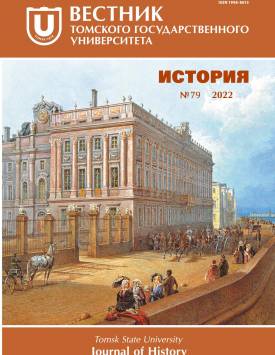Book Culture in a Focus of Historical Sociology
A number of scholars argue that bibliology in Russia is currently in the state of crisis. Its roots are not only in the conditions of the sources or databases that are growing rapidly due to the digitization of contemporary culture, but also in the theoretical and methodological foundations of the field itself which is centered around the book as a material artefact, that presupposes a descriptive approach. Such approach is consistent with quantitative and classification-based principles of document studies but does not view the book and book culture in a broader context of socio-historical dynamics of human societies. The current situation in the Russian bibliology is in contrast to the book studies field abroad which is focused on interdisciplinary synthesis and collaboration among those representing different strains in humanitarian thought. Thus, the purpose of this article is to briefly discuss the role historical sociology can play in resolving the disciplinary crisis of the field of bibliology in Russia. From its origins to the present day, historical sociology has sought to explain social changes both on the macro level of long historical duration and on the micro level of the historical process. One of the key research goals at the heart of the plethora of its theoretical constructs and proposed explanatory models is to identify the factors of the historical process (moving forces of history), their mechanics and impacts on society. The history of books and book culture necessitates focusing on the factor of technology and the factor of external influences which primarily manifest themselves in media revolutions. These revolutions radically transform culture’s technological infrastructure creating conditions for appropriation of the donor’s accomplishments by the user. But the focus on the technological factor of media revolutions should not be inflated in proportion to lead to technological determinism. This happens when technologies are perceived not as one of the factors, but as a dominant factor of historical development and various inventions and innovations are viewed as capable to form new types of society, radically different from their predecessors, as is often the case in numerous versions of the theory of “information society.” Thus, a factorial analysis of the historical process allows us to consider book culture from within the framework of long historical duration and to identify both periods of radical cultural and technological transformations and their external appropriations and periods of relatively stable dynamics on the basis of accomplished breakthroughs and the acceptance of the new cultural practices by the society at large. Book culture in its turn now serves both as environment and a result of activities of various institutional and individual actors that can be conceived as a cohesive whole, structured by a communicative chain, which fixes the roles of these actors from the production of the text to its consumption. The authors declare no conflicts of interests.
Keywords
book culture, bibliology, historical sociology, media revolutions, technological determinismAuthors
| Name | Organization | |
| Bereznyakov Dmitry V. | Novosibirsk State University | bereznyakov@ngs.ru |
| Kozlov Sergey V. | State Public Scientific and Technological Library of the Siberian Branch of the Russian Academy of Sciences | feld71@mail.ru |
References

Book Culture in a Focus of Historical Sociology | Tomsk State University Journal of History. 2022. № 79. DOI: 10.17223/19988613/79/16
